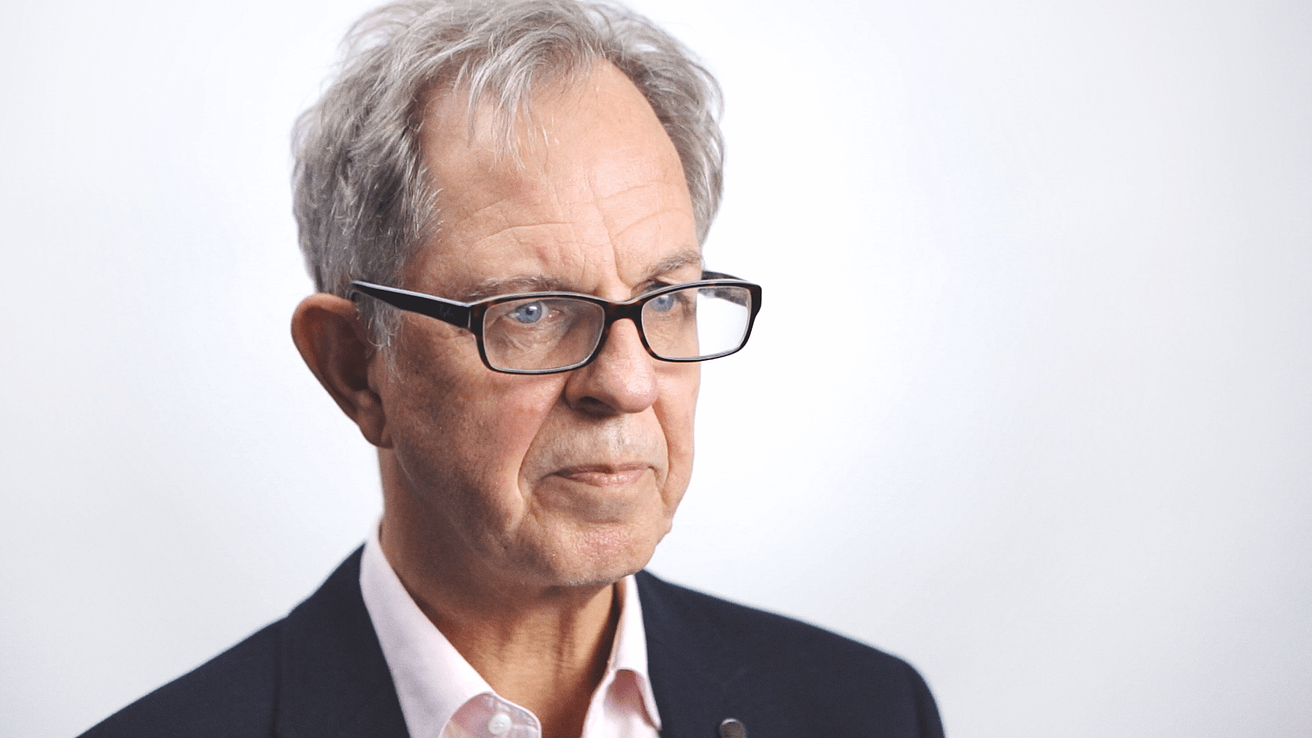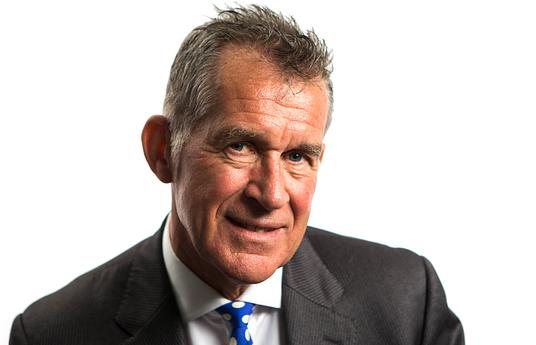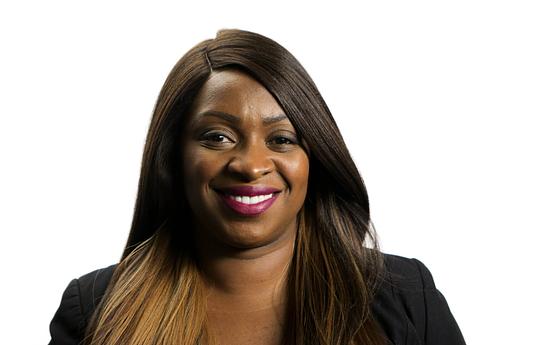Andy Hargreaves
Andy Hargreaves is a professor at Boston College in the United States. He specialises in educational change and leadership. He works with schools, school systems, governments, teacher unions and other organisations all across the world to help them to change when they want to change and to help them distinguish good change from bad change - to support the good ones and to fight and oppose the bad ones.
Skills
Are schools adequately preparing students for the world in which they live?
There are a couple of issues with the way that children are educated across different parts of the world. The first is how children are educated in the most developed countries where there are resources. The second is in developing countries where there are fewer resources.
I’d say in the less developed ones we’re doing well in terms of giving children more access to education. We’re progressing very well towards the United Nations Development Goals, but we’re not really making progress yet in terms of the quality of education that young people are receiving in the less developed economies.
In the developed ones the question is: what are the examples that the less developed countries could follow? Unfortunately, in too many of those they’re not good examples. Particularly in the Anglo-Saxon countries, but others as well, the emphasis is on a fairly standard curriculum taught in a traditional way, with lots of testing and lots of assessment in order to meet the needs of accountability. Only in a few countries, Finland being one of those countries, there's really a different kind of direction and a different kind of emphasis across an entire system.
What are the key skills we should be teaching in school?
The key skills in classrooms are learning skills and life skills. The learning skills are to know how you learn, which is the first thing. To be aware of the ways you learn best, and the ways of learning that you find difficult. To be able to articulate how you learn to other people. Once you know how you learn best you can find ways to support your learning. It may be visual, it may be online. I don’t listen very well apparently, and so I need to read things as well as listen at the same time. These are important cognitive skills, and there are other very traditional ones like perseverance, tenacity, sisu (the Finnish word to persevere through obstacles and through difficulties).
We’ll need new skills of access to learning and old skills of perseverance, hard work and discipline. And then these cross over with the life skills that we will need - the skills to be emotionally healthy, the skills to engage in the internet and digital learning enough, but also to move away from it. To engage in more sustained periods of learning, to engage in relationships with the family around us. To engage in the awe and the wonder of the natural world, and the natural environment. To care for our communities and to invest time and commitment to them.
It is important to have new economic and digital skills that connect to cognitive learning, but also to continue to value what the Nordic countries have valued for a long time, which is lifelong learning and learning for life. And to hold these side by side.
Teachers
What are the key challenges with or for teachers?
Around the world more and more teachers are complaining of stress and being overworked for various reasons, but one of these is the social demands from children and families. I suspect if we looked at other frontline workers in the public sector, in social work or in healthcare, we’d probably find the same thing. Faster and faster economies are placing more and more families, parents, and children under great pressure and people on the front line of society have to deal with these pressures. That is one of the jobs of the teacher.
One of the things that will not change in the next 100 years is the role of teachers in socializing children, in caring for them, and in providing them with a safe place within an environment that is supportive. So the first challenge for teachers and for schools is how to help them to continue to care effectively for young people in the face of all these other pressures. We can support them in various ways to do that, including other adults working alongside teachers to provide that emotional and other kinds of support for the child. I think that’s the first challenge.
The second big challenge is the authority of the teacher. The authority of the teacher has traditionally depended on the teacher’s possession of knowledge that the child has not possessed or had access to themselves. If the teacher had known a lot, they had authority. If they hadn't known as much, they still had authority because it had been more than the child had known. In the internet age and the digital age with Google and every other mechanism, search engine, and access to information you can imagine, there is no independent access to authority. You can immediately check a claim the teacher makes within seconds.
Some people would say (and I think they’re wrong), that the new role and the only role of the teacher is to be a facilitator. To know how to learn and how to access and assess information. That is true, but I think at the same time children still love teachers who really are well read and well learned in particular areas. They may make flaws of fact here or there but mainly they have a kind of mastery. So teachers will need to be in some ways as authoritative over their areas of knowledge and their disciplines, but also more masters of the way that students learn and the way they access knowledge at the same time.
Assessment
How do you see the future of testing in schools?
The bubble of standardised testing is really already bursting. The reason for that is not because of the objections of the teaching profession, which are solid and long standing, but because more and more of the public, and particularly the more articulate parts of the public, are coming to understand that their children are suffering because of testing. They are learning less, they are less engaged with their learning, there’s less joy and happiness within their schooling. It is when the articulate parts of the public begin to speak out against testing and the impact is has on their children that politicians begin to understand there have to be other ways of securing accountability.
Of course we should test. We need to test anything - we need to test our bodies, we need to test our health, we need to test our blood pressure, but we only really need to test samples. We don’t need to remove all the blood from our body in order to see how our blood is doing. The same is true of the way we test our schools and our systems. So focus on samples not on the whole population.
There are tests that are very good. They’re not high stakes as we put it, but they’re very good diagnostically. So assessment should be used to get feedback on how students are learning, where the gaps are in their learning and how to support them. Diagnostic testing and assessment for learning, these are really the future tools that we will be embracing more and more.
Should we pay attention to PISA?
I think at the moment we should pay attention to PISA but not be overwhelmed by it in terms of its influence. PISA in its origin assessed applied and creative learning and it still does that to some degree, and this is one reason why Finland has done so well. The danger is that now PISA is being marketed to schools around the world so people can practice on PISA items.
Some countries have had goals of saying: how can we score higher on PISA? The important thing is not to look at where your ranking is but to look at broadly which zone you are in. Are you broadly near the top or broadly near the bottom? There are seven or eight European and Canadian provinces that are all bunched very closely together. Finland is one or two points below some, one or two points above others. It is useless to waste time on whether you can go up two places in the rankings because you also cannot control what it is that other countries do.
So pay attention to what PISA measures, as long as it is valid and fair, and pay attention to whether that synchronises with your goals as a nation. And be bold in how you pursue things like the development of the whole child, creativity, innovation, links to the new economy. Be clear about your values, bold about your goals and also attentive to the data and evidence of how people are doing around you.
Environments
What should change in physical environments in schools?
The physical environment of school should reflect the goals of learning and of socialisation. Remember, schools are not only about learning, schools are also about caring for and supporting individuals as well. We need to rethink everything about our schools to make them into these kinds of places for people.
I remember a few years ago I was at a conference that was sponsored by someone who made children’s furniture and furniture for schools. He said when he took over the company they made furniture for two kinds of institutions, they made furniture for schools and prisons. It was the same furniture. Now they’re thinking about how to make the furniture in schools flexible for children’s learning. So chairs that have different heights - coffee style, cafeteria style, lab style, desk style, individual. Simply where we sit is a very important variable to think about.
How we can use furniture differently for theatre and for other purposes. How we use light in the school. Everything has to be rethought in terms of how it encourages learning, safety and security and feeling alive and engaged. And how we combine all these things with of course environmental sustainability so that the fixtures are not expensive, burn out quickly, are renewable, and actually add to the quality of the environment rather than depleting quality from the environment.
Leadership
What should change in education policy?
There are two things that are important in high performance in education for equity and excellence, and we’ve studied these a lot over the last few years. One is political stability. Political stability can come about because of one party rule or it can come about because there is consensus across different political parties that education is somehow above ideological differences. Finland has done very well in this area, so have other countries such as Singapore and Alberta in Canada, which has the same government elected for forty-four years. So stability is very important.
The other thing that’s interesting is local municipalities. Internationally there is an attack on local municipalities, on local democracy, because local democracy gets in the way of the national will and of private interests. If you remove local democracy you also remove teacher unions and teacher union interests. So there is a global assault on the importance of local democracy for public education, and yet all the successful systems we know have strong local communities, including the city states of Asia. They may not be democracies as we understand them but they very much focus on the local city and on the local community.
So we have to strengthen local communities, but yet not all systems that have strong local communities are high performing systems. So there is a paradox: how do you focus on local democracy when the quality of local democracies vary? I think one big move in the future should be how we get local municipalities to work together so that they maintain good variation of responding to their communities and eliminate bad variation of differences in quality and fairness.
Should government have a role in leading educational change?
Government should absolutely have a role in leading educational change. I think it’s a pity in Canada, for example, that there is no federal strategy on education. It’s a shame when a country has a vision of who it wants to be and what it wants to become but doesn’t see the future of its children as part of that vision.
The elected government has an absolute right and a responsibility to be leaders in that vision. Not to be the dictators, not to micromanage everything from the top, but generally to say in partnership with others: this is mainly the direction we are moving. It may be more achievement in mathematics and science, it may be more joy and happiness in schooling, greater mental health amongst adolescents, more creativity and innovation in the new economy, but whatever the direction is the government absolutely has a responsibility. However, it does not have the right to dictate the details of how that responsibility is fulfilled.
Personal memory
What was your favourite moment in your own education?
A fond memory of my own time in school is from probably my best teacher who passed away just a few years ago. Her name is Mary Hindle and she taught me when I was ten to eleven years old at the top end of primary school. I’d like to say two things about Mary Hindle.
Mary Hindle understood, although she didn’t have a label for it, that I was very talkative, that I forgot things easily and that I was not always the easiest child to manage within a class. But she understood me and all the other children, in 1960, for who we were as individuals. At a time when every child had to go out at recess for lunch or for break in the morning she allowed our class to stay in and to write newspapers. We had two newspapers in the class and I was the editor of the travel section. I’d never traveled anywhere, I traveled only in my head, but I read lots of travel books and this was a great passion for me.
A few years ago my old primary school had a new building and they asked me would I lay the foundation stone for the new building with my name on it. I agreed to do it if I could lay the stone with my best teacher. So when you walk into the new school now it says “This Foundation Stone Was Laid by Former Pupil Professor Andy Hargreaves, and his Teacher Mary Hindle.”
For me that and the moments long ago when I was a child is a connection between two of the best moments in my life.
The next 100 years
The next 100 years of Finnish education should... first, look like the best of the last fifty years, which values the whole child, the importance of cooperation, the significance of high value and high quality teachers, the connection of schools to their communities, and the importance of emotional and also cognitive learning. This should stay in the next 100 years.
The other half of the next 100 years is that they probably shouldn't be like the last fifty years. Not because the previous fifty years were bad, but because all successful organisations remain successful by the way they change, by the way they adapt, by the way they move ahead of everybody else before the trends are known by everyone. Just as Nokia was slow to adapt to finger based technology on mobile phones, it’s important that Finland is not slow to adapt to trends affecting it, like the digital world in schools, or the rise of the importance of immigrants and refugees, and different languages and racial diversity.
In sometime in the next 100 years I would like to come to Finland (if medical science would enable me to stay alive) and be able to say to the rest of the world: Finland historically has been a leader of equity in social class, in economic differences in gender, in disabilities. Now look how Finland has become a world leader in equity, in racial and ethnic differences.
That would be one of the things I would love to see in the next 100 years.


